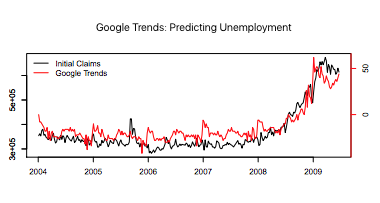
<< Read Part 1: FAANGs In Finance: Joining The Customer Journey
<< Read Part 2: FAANGs In Finance: Amazon
What’s the #1 source for fast, accurate information? Google. With a culture of transparency and unparalleled data management capabilities, Google is positioned to help wealth managers engage clients by delivering the highest level of insight into their investments. With rumors circulating of a Google Wealth product, today’s financial institutions should act fast in embracing Google’s platform.
In a 2015 FactSet survey, high net worth individuals (HNWIs) were most excited about a wealth management offering from Google, citing their need for more frequent and in-depth insights into their portfolios. A UBS analyst famously used Google satellite images of parking lots to predict Walmart’s revenue. Google analytics can predict unemployment claims before the government finishes counting them. While Google Finance failed to gain traction from Yahoo! Finance, Google has improved the results of stock-market searches by pulling the charts, quotes, and news onto their main search result pages.


Google has danced around the more profitable parts of finance for one reason: Regulation. While Google may have an aversion to the regulated parts of finance, it can still become a major player in finance by leveraging its strength as a preferred platform, its trusted brand, and proven ability to store information securely.
Google still makes 86% of its revenue from unregulated online advertising. Aside from its moonshot projects, its other products are mostly tools to gather behavioral insights that, in the end, further boost their ad business. Here are some of Google’s products that could prove to be a gateway for financial institutions:
Storage:
Google has not been shy about its ambitions in cloud computing. In fact, it has already made the Google Drive a passport platform for healthcare documents, see: How Google G Suite Helps Keep Your Hospital HIPAA Compliant. Google holds 27% of the market share for cloud storage, second only to Dropbox, with 47%.















